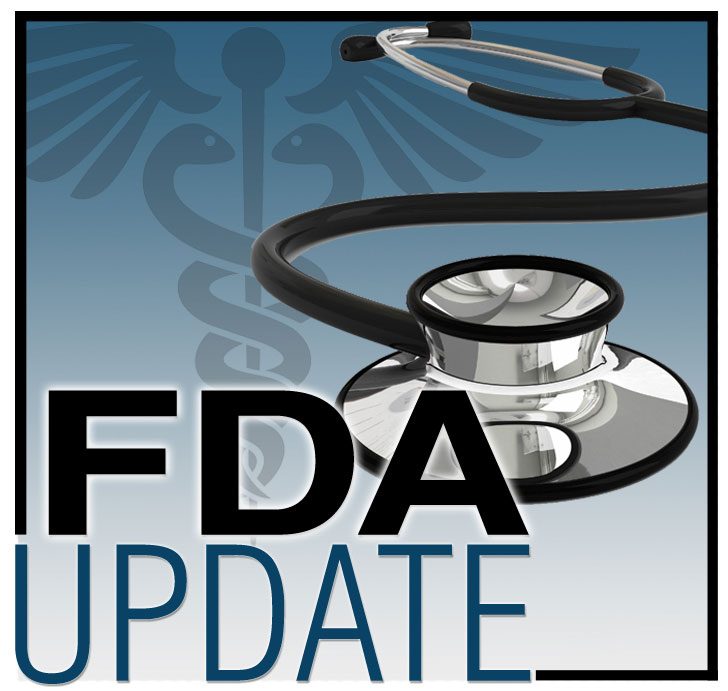FDA Approves First Biosimilar for Cancer Treatment

On September 14, 2017, the U.S. Food and Drug Administration (FDA) approved MvasiTM (bevacizumab-awwb, Amgen Inc.) as a biosimilar to Avastin® (bevacizumab, Genentech Inc.). Mvasi is the first biosimilar approved in the U.S. for the treatment of cancer.
Mvasi is approved for the treatment of patients with the following cancers:
- Metastatic colorectal cancer, in combination with intravenous 5-fluorouracil-based chemotherapy for first- or second-line treatment. Mvasi is not indicated for the adjuvant treatment of surgically resected colorectal cancer.
- Metastatic colorectal cancer, in combination with fluoropyrimidine-irinotecan- or fluoropyrmidine-oxaliplatin-based chemotherapy for the second-line treatment of patients who have progressed on a first-line bevacizumab product-containing regimen.
- Non-squamous non-small cell lung cancer, in combination with carboplatin and paclitaxel for first line treatment of unresectable, locally advanced, recurrent or metastatic disease.
- Glioblastoma with progressive disease following prior therapy, based on improvement in objective response rate. No data available demonstrating improvement in disease-related symptoms or survival with bevacizumab products.
- Metastatic renal cell carcinoma, in combination with interferon alfa.
Cervical cancer that is persistent, recurrent, or metastatic disease, in combination with paclitaxel and cisplatin or paclitaxel and topotecan.
Health care professionals should review the prescribing information in the labeling for detailed information about the approved uses (http://www.accessdata.fda.gov/drugsatfda_docs/label/2017/761028s000lbl.pdf).
The approval was based on comparisons of extensive structural and functional product characterization, animal data, human pharmacokinetic and pharmacodynamic data, clinical immunogenicity between Mvasi and U.S.-licensed Avastin demonstrating that Mvasi is highly similar to US-licensed Avastin and that there are no clinically meaningful differences between the products. It has not been shown to be interchangeable with U.S.-licensed Avastin.
Common expected side effects of Mvasi include epistaxis, headache, hypertension, rhinitis, proteinuria, taste alteration, dry skin, hemorrhage, lacrimation disorder, and exfoliative dermatitis. Serious expected side effects of Mvasi include perforation or fistula, arterial and venous thromboembolic events, hypertension, posterior reversible encephalopathy syndrome, proteinuria, infusion-related reactions, and ovarian failure.
Like Avastin, the labeling for Mvasi contains a Boxed Warning to alert health care professionals and patients about an increased risk of gastrointestinal perforations, surgery and wound healing complications, and severe or fatal hemorrhage.
Healthcare professionals should report all serious adverse events suspected to be associated with the use of any medicine and device to FDA’s MedWatch Reporting System by completing a form online (http://www.fda.gov/medwatch/report.htm), by faxing (1-800-FDA-0178) or mailing the postage-paid address form provided online, or by telephone (1-800-FDA-1088).
Follow the Oncology Center of Excellence on Twitter @FDAOncology (http://www.twitter.com/@fdaoncology).
Check out recent approvals at the OCE’s new podcast (http://www.fda.gov/DISCO), Drug Information Soundcast in Clinical Oncology (D.I.S.C.O.).
In collaboration with the FDA and as a service to our members, ONS provides updates on recent FDA approvals and other important FDA actions (e.g., updated safety information, new prescribing information) pertaining to therapies for patients with cancer. This allows the agency to inform oncologists and professionals in oncology-related fields in a timely manner. Included in the FDA updates is a link to the product label or to other sites for additional relevant clinical information. In supplying this information, ONS does not endorse any product or therapy and does not take any position on the safety or efficacy of the product or therapy described.
